Contact UsCONTACT
Please feel free to contact us if you have any questions or concerns.
Inquiry FormStories
STORIES
SERIES EMBARK
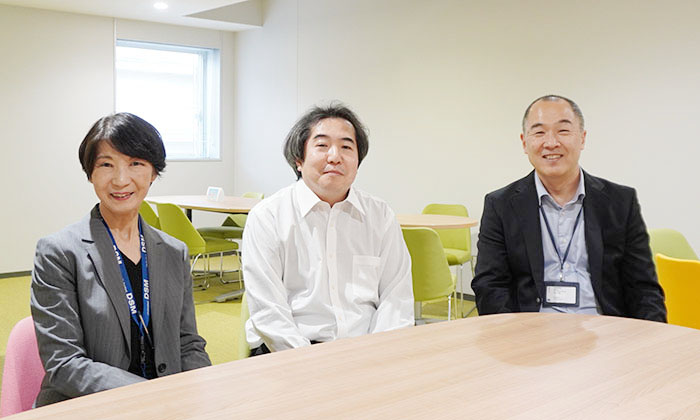
Ulcerative colitis is a designated intractable disease with an estimated 220,000 patients in Japan. The disease causes diarrhea, bloody stools, and other symptoms that interfere with daily life. In 2021, Dr. Masahiro Shiokawa, Assistant Professor of Department of Gastroenterology and Hepatology, Gtaduate School of Medicine, Kyoto University, reported the discovery of autoantibodies that cause ulcerative colitis. Based on this discovery, he launched Link Therapeutics, Inc. to realize a new treatment that removes the etiological agent itself from the body. The company is developing a medical device to remove autoantibodies, the cause of disease, from the body. Compared to existing therapies, it is expected to have fewer side effects and to be effective immediately. We asked Yoshiko Abe, President & CEO, Shiokawa, who serves as director, and Masayoshi Aosasa, Head of Administration & Business Development Department, about the company's business and prospects as it searches for causes and develops treatments for autoimmune diseases, with ulcerative colitis as a cornerstone of its efforts.
(Interviewer: Sae Ito)
After graduating from Kyoto University School of Medicine, I studied general internal medicine. Later, I chose gastroenterology as a subspecialty (specialist) and dealt with patients on a daily basis, but I began to see the limitations of medicine, that "there are diseases that cannot be cured. About 10 years after becoming a doctor, my desire to "cure diseases that cannot be cured" became stronger, and I started graduate school research while remaining in the clinical field.
I had conducted research on autoimmune pancreatitis and ulcerative colitis, but gradually I began to see the limitations of university research. I wanted to do research to cure diseases seriously, rather than just doing research for the sake of a paper, and I did joint research with pharmaceutical companies, but I could not find a company or person who shared my image of what I wanted to achieve. I struggled for a few years thinking, "Something is not right..." Then I met Hiroyuki Ueno, a capitalist at Kyoto University Innovation Capital (Kyoto-iCAP).
When I told him about my research and the vision I wanted to realize, he suggested that I start a business. I believe that a venture company is in a position to act as a bridge to get university research results put to practical use by pharmaceutical and other companies. By founding the company ourselves, we were able to take on this role ourselves, and I am very happy with the results.
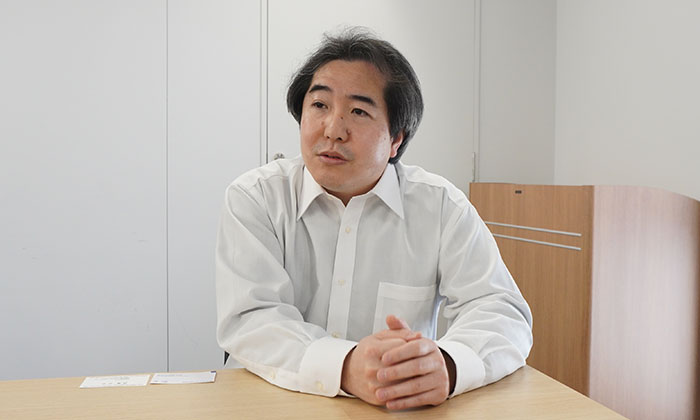
I started my career at a chemical manufacturer. At the time I joined the company, chemical manufacturers were beginning to develop businesses related to drugs and biotechnology, and I was first involved in the initial design of a medical device called "Adakaram," which is still used today to treat ulcerative colitis. In fact, this experience has led to our current business.
In addition, I worked on the research and development of a patch that allows low-molecular-weight drugs to penetrate the body and on exploratory research for wound-healing peptides to treat bedsores. I believe it was because I was at a chemical company that I was able to experience a variety of work related to drug discovery, from discovery to early clinical trials. However, because it was a large company, I gradually came to feel that the work was too conservative, and I decided to work for a venture company as a business development manager. I was drawn to Dr. Shiokawa's research on autoantibodies and his personality, and I decided to join him and become the president.
Actually, there wasn't much. Of course, it is not true that I had zero hesitation, but I had a stronger feeling that this was a once-in-a-lifetime opportunity. After hearing your story, I was convinced that I could do my best in this environment, and I made my decision within two weeks of hearing your offer.
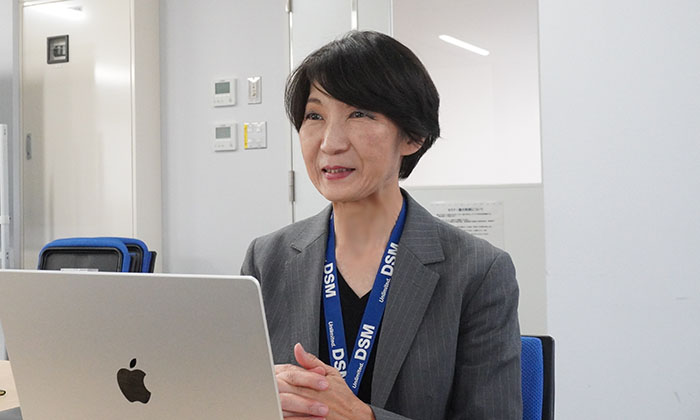
I have a background in agriculture, but I didn't study much in high school and university, so I ran relay races (laughs). I am proud to say that I learned the spirit of fulfilling one's responsibility when receiving a sash from a runner from the relay race. When I was in my fourth year of university, I was engaged in research on the creation of antibodies from scratch. At the time, antibody drugs did not yet exist, but I found this research very interesting. I also challenged myself to inject disease-causing substances into animals and create antibodies that blocked the causes of disease. After graduation, I worked as a sales representative for a pharmaceutical company, but I could not forget the fun of research, so I returned to the university to continue my research on antibodies.
For the most recent 10 years, I worked for a publicly traded company, and although I was supposed to have joined the company as a researcher, I had a wide variety of jobs in the sales department, administration department, and M&A. The last few years I was given the opportunity to work on antibodies, which was actually a job in antibody medicine that I had never wished for. I was in charge of a series of tasks related to drugs for autoimmune diseases: acquiring data, making intellectual property, and licensing to major pharmaceutical companies. Just when I thought I had done all I could do, I heard about our company's business and was very excited to join.
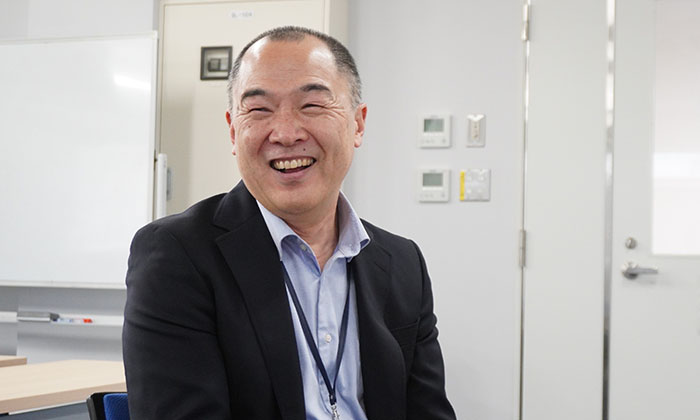
I usually see patients from 9am to 5pm and then do research. It may not be very good for the times, but I love my job, so it doesn't bother me. Shohei Ohtani, as a pitcher, would know "if I throw here, I will get hit" because he is a hitter, and I think he can hit a lost pitch because he is a pitcher, and I have a thick skin that I have a similar point of view. Because I do research, I can tell things that others cannot see, such as, "This patient will have this symptom because of this kind of data. I think research is interesting because I do clinical work, and clinical work is interesting because I do research.
At the core of our current business are the research results that led to the discovery of autoantibodies that are thought to be the cause of ulcerative colitis. The disease peaks in onset in people in their 20s, but even children as young as one or two years old can develop the disease. The number of patients is increasing every year, and since the disease repeatedly goes into remission and relapses, patients must live with the disease for a long period of time. The disease is first treated with medications, but about 10% of patients fail to respond to the medications and require a total colorectal resection. Although it was known that ulcerative colitis is an autoimmune disease in which the body mistakenly attacks itself through an immune response, until now it was not known which antibodies cause the disease.
In this situation, Dr. Shiokawa's research team discovered that anti-integrin αvβ6 autoantibody, an autoantibody against a protein called integrin αvβ6, is produced in the bodies of patients with ulcerative colitis. Integrin αvβ6 plays an important role in the adhesion of epithelial cells in the colon, but its function is inhibited when anti-integrin αvβ6 autoantibodies are produced. Since anti-integrin αvβ6 autoantibodies are rarely detected in the bodies of people without ulcerative colitis, we believe that anti-integrin αvβ6 autoantibodies cause the formation of ulcers in the colon and the development of ulcerative colitis.
We are developing a medical device called a "molecular targeted column" that removes anti-integrin αvβ6 autoantibodies, which cause ulcerative colitis, from a patient's blood. The treatment involves passing the patient's blood through the column to remove only the anti-integrin αvβ6 autoantibodies and returning the blood to the body. It works in a similar way to dialysis to clean the blood, but the major advantage is that it has low side effects because it does not remove irrelevant blood proteins.
The product design is nearing completion, including how much carrier (carrier) to put in the column to adsorb the autoantibody and the degree to which the autoantibody should be removed. We will conduct tests to confirm safety and stability and examine manufacturing methods, aiming to launch the product in 2030. Eventually, we would like to expand overseas.
Currently, immune-suppressing drugs are used to treat ulcerative colitis, but because the immune system is suppressed throughout the body, including healthy parts, the side effects are inevitably more severe. Even if they are temporarily effective, they may become ineffective as they are used. There are many drugs that can be used, but there has been no special treatment. Medical devices such as Adakaram, which suppresses immunity and inflammation by removing leukocyte cells from the blood, are also used, but this is not a specific treatment. If the molecular targeting columns we are developing can specifically remove the pathogenic antibodies, we can expect to achieve a therapeutic effect quickly and reliably. In the future, we hope to conduct research and develop treatments for other autoimmune diseases and cancers caused by autoantibodies.
The molecular targeting column we are developing is designed to remove different antibodies by changing the antigen that is fixed to the internal carrier. In anticipation of future developments, we have made it possible to treat a variety of autoimmune diseases by simply changing the antigen.
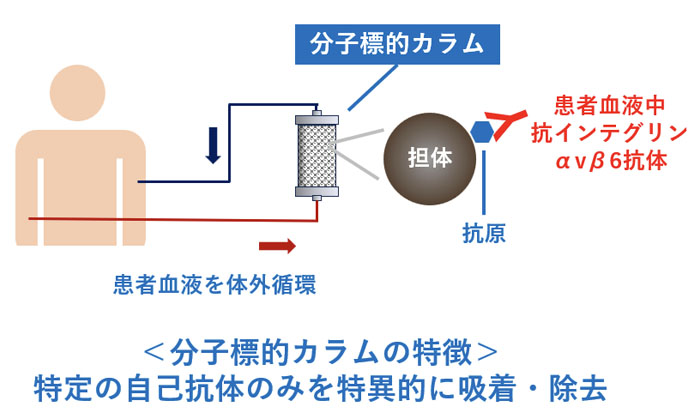
I hope to be able to cure ulcerative colitis easily and radically with relatively few side effects using molecularly targeted columns. I would like to realize my desire to cure the disease of the patients in front of me through the search for the cause of the disease and the development of new treatment methods.
I am very grateful for the detailed support that has helped me to scratch my itch, including the introduction of human resources. There are many tough times when it comes to business, but I am very grateful for your kind words and warm hands, and I am very thankful for your companionship.
I feel that startups happen at a ratio of about 1 to 999 things that go well to things that don't. I think the hurdles are high, but once you start a business, you will be able to retreat, and you will be able to promote your business unexpectedly. I would like you to take on this challenge with determination and courage. However, I think it is very important who you bring on board. In this respect, our company was very fortunate.
To answer your question from the perspective of a worker, there is a sense of accomplishing in one or two years at a venture company what it takes 10 years to accomplish at a large company. I believe that being in this kind of environment from a young age will foster great human resources because you can learn how to deal with a variety of things.
I think venture companies are very mobile. I never thought I would start my own company, but I am having a lot of fun doing what I want to do. I encourage you to take on this challenge.
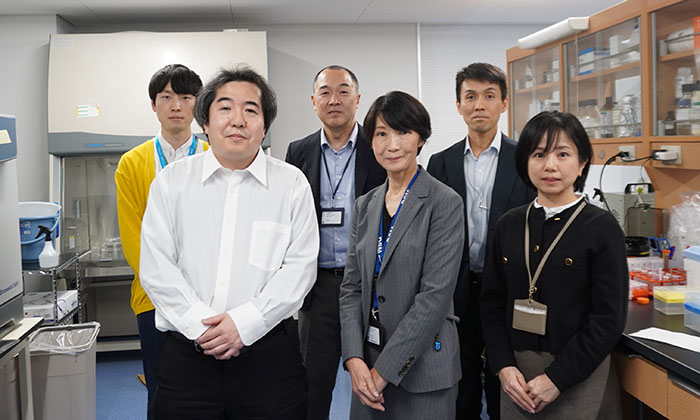
(Interviewed in February 2024. Affiliations, positions, etc. as of the time of the interview)
Various diseases have been revealed by the analysis of genes, mRNAs, and proteins, and Link Therapeutics, in collaboration with Kyoto University, aims to create medical tools targeting "autoantibodies" from a new perspective. Its embarkation began with the work of Assistant Professor Shiokawa and his colleagues at Kyoto University's Graduate School of Medicine, and now specialists in various fields have come together to actively pursue research and development. Kyoto-iCAP hopes that the activities of Link Therapeutics and Kyoto University will elucidate the pathogenesis of diseases with low treatment satisfaction and provide innovative medical tools to patients.
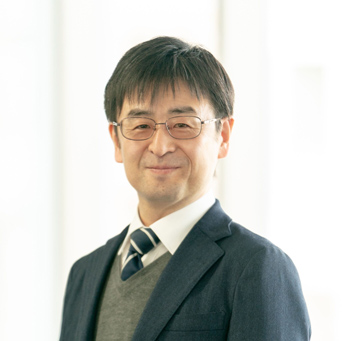
Hiroyuki Ueno

Link Therapeutics Inc. Website
Please feel free to contact us if you have any questions or concerns.
Inquiry Form